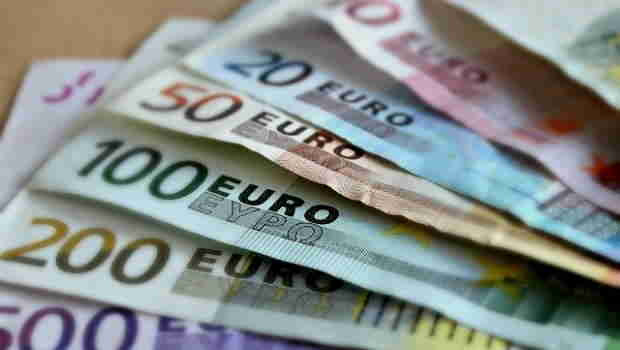Europe close: Stocks rise despite disappointing data from UK, Germany

European shares were in positive territory at the close on Monday, with retailers still leading the charge through the afternoon, despite grim GDP figures from the UK and a pessimistic survey in Germany.
The pan-European Stoxx 600 was up 1.76% at 427.75, with Germany’s DAX ahead 2.4% at 13,402.27 and the CAC 40 in Paris rising 1.95% to 6,333.59.
In London, the FTSE 100 closed up 1.66% at 7,473.03, and the FTSE 250 was ahead 1.7% at 19,513.87.
“The rally in equities over the past week will have many scratching their heads, wondering why markets have been able to rebound despite the lack of news,” said IG chief market analyst Chris Beauchamp.
“But it is because there is so little in the way of big news that markets have recovered.
“It has allowed investors to focus on valuations, and put the rate hikes of the ECB and the Fed’s hawkish commentary behind them.
“The lack of earnings news too has made it easier for the FTSE 100 and others to bounce.”
On the economic front, official data earlier showed the UK economy returned to growth in July, although it was weaker than expected as industrial production and construction shrank.
GDP rose 0.2% following a 0.6% decline in June, coming in below economists’ expectations of 0.5% growth.
The services sector was the main driver of the rise in GDP, with growth of 0.4% in July, up from 0.5% the month before.
Meanwhile, production contracted by 0.3% following a 0.9% decline in June, mainly due to a fall of 3.4% in electricity, gas, steam, and air conditioning supply.
Construction fell 0.8% in July following a 1.4% contraction the month before, which came solely from repair and maintenance, which fell 2.6%.
It marked the second consecutive contraction for production and construction.
The ONS said monthly GDP was now estimated to be 1.1% above its pre-Covid level in February 2020.
In Germany, meanwhile, the Ifo Institute warned the economy was cooling "sharply" as it forecast a hard winter for the country.
Publishing its autumn economic forecast, the Munich-based Ifo said high inflation rates were eroding the real incomes and savings of homeowners, which in turn was stifling private consumption.
The Ifo was forecasting inflation to average 8.1% in the current year before peaking at around 11% in the first quarter of 2023.
Overall, inflation was expected to average 9.3% in 2023.
GDP was expected to increase by 1.6% this year, before contracting by 0.3% in 2023.
The Ifo blamed its weakening outlook on Russia’s invasion of Ukraine and the subsequent surge in energy prices.
In equities, shares in French care home company Orpea slumped 21.54% after the debt-laden firm said its financial performance was expected to decline further in the second half of the year.
Orpea, which had come under fire over how it runs its homes and was facing various legal proceedings in France, said operating profit margin on first-half earnings before interest, tax, depreciation, amortisation and restructuring or rent costs dropped to 18.5% from 24.9% a year earlier.
"In this context, and depending on the recovery of its occupancy rate, Orpea's EBITDAR margin in the second half of 2022 could be lower than the level seen in the first half," the company said in a statement.
Swedish bike maker Thule Group fell 9.26% after the company reported an unstable outlook for retail cycle sales.
On the upside, UK retailers J Sainsbury, Marks and Spencer and JD Sports Fashion were all higher, rising 5.33%, 7.69% and 4.28%, respectively.
Reporting by Josh White at Sharecast.com. Additional reporting by Frank Prenesti.